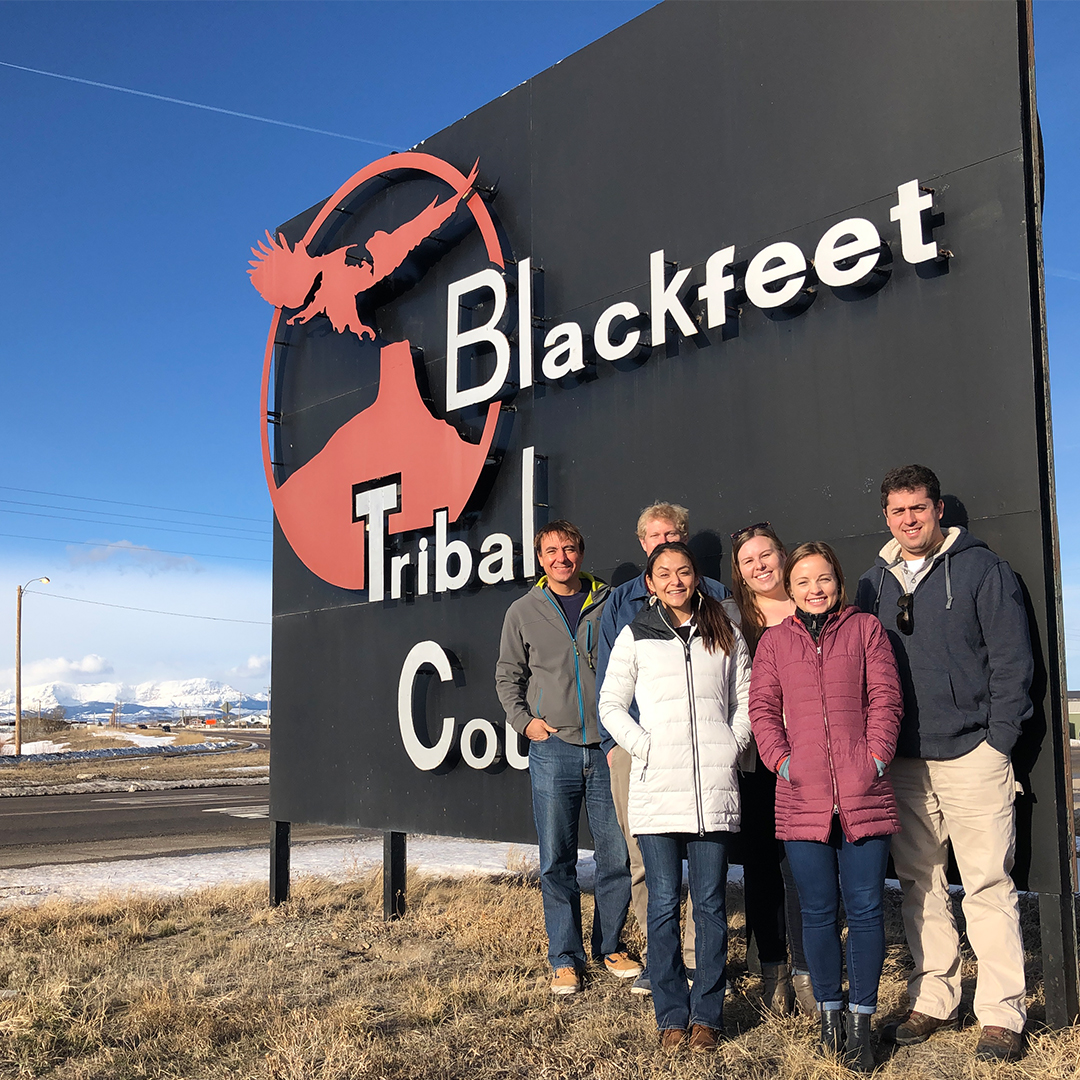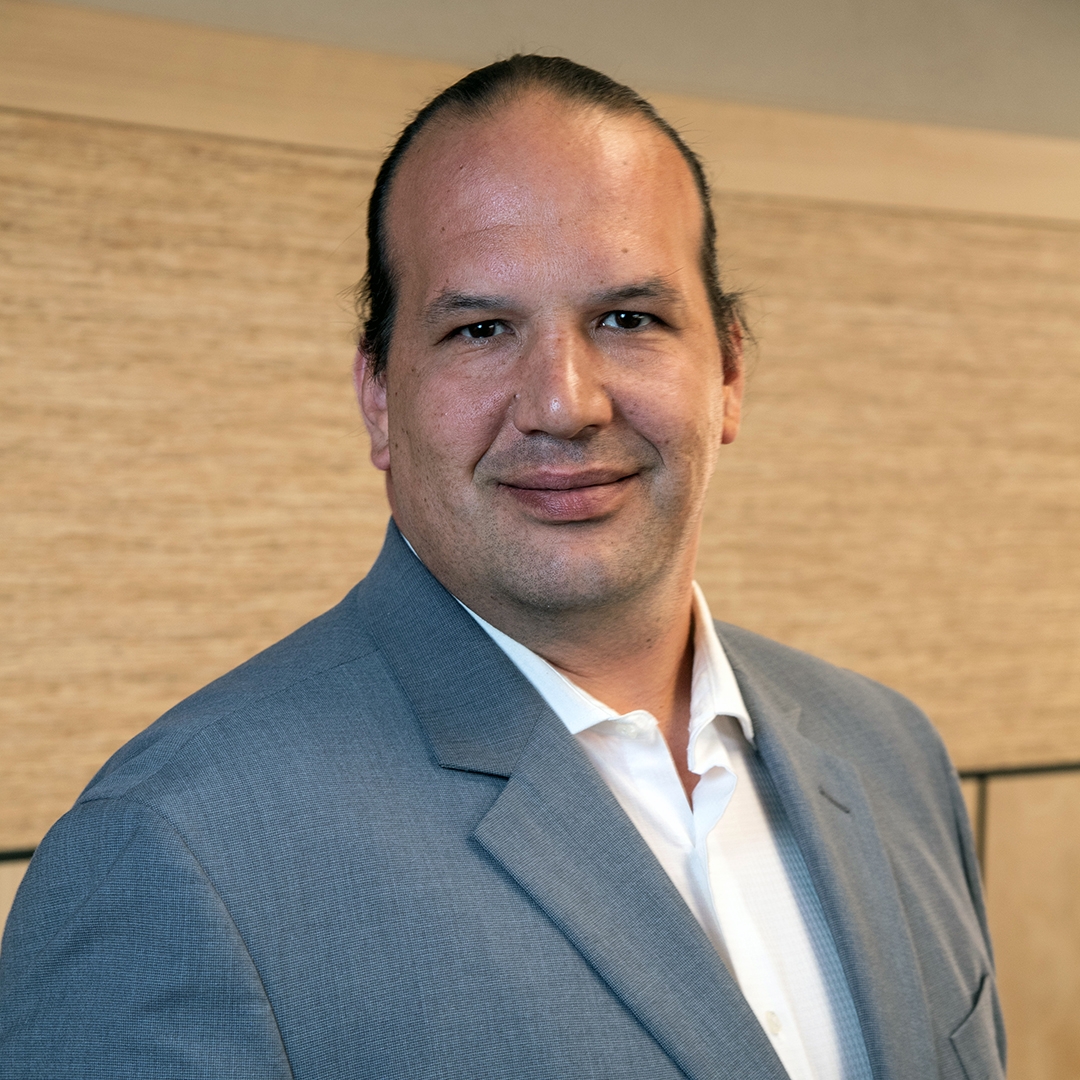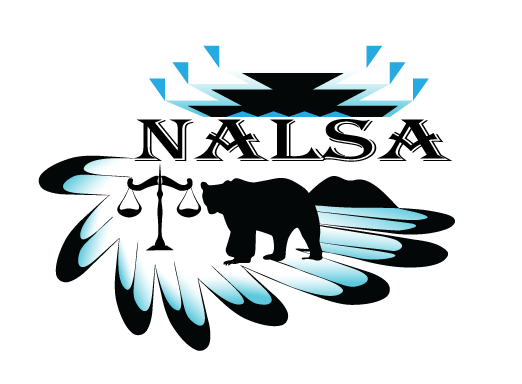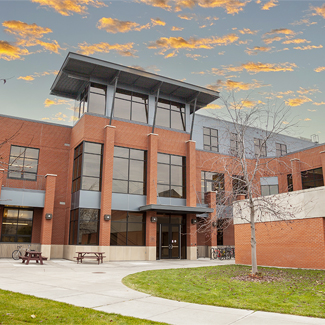American Indian Law
Our program provides a relevant and thoughtful curriculum that integrates the substance of Federal Indian, Indigenous Peoples and Tribal Law with its practical and contemporary application in Montana, Indian Country and beyond.
We honor the importance of our location; serve the governments and people of Indian Country; promote the study and understanding of tribal sovereignty, culture, and history in a culturally-appropriate manner; and support the enrollment and success of our Native students and all law students interested in the study of Federal Indian, Indigenous Peoples, and Tribal Law.
Degree Concentration
 With eight federally recognized Indian tribes, seven reservations, and eleven tribal groups located in what is now known as the State of Montana, the Alexander Blewett III School of Law at the University of Montana provides law students with an unrivaled opportunity to integrate legal theory and practice in Indian and tribal law. A long legacy of positive working relationships have established strong ties between the Law School, tribal governments, and tribal courts , which ensure that you can and will work first-hand on important issues as you help build and sustain that legacy.
With eight federally recognized Indian tribes, seven reservations, and eleven tribal groups located in what is now known as the State of Montana, the Alexander Blewett III School of Law at the University of Montana provides law students with an unrivaled opportunity to integrate legal theory and practice in Indian and tribal law. A long legacy of positive working relationships have established strong ties between the Law School, tribal governments, and tribal courts , which ensure that you can and will work first-hand on important issues as you help build and sustain that legacy.
Curriculum
Students pursuing an Indian law concentration enroll in our survey course in Federal Indian Law and our select from among advanced Indian Law courses. Most of these students also enroll in complementary courses in water law, public lands, administrative and environmental law, and agricultural law, among others. In recent years, students have also completed advanced independent study projects in Native American water rights and Indian taxation.
Clinical Work
The Margery Hunter Brown Indian Law Clinic, the oldest and first Indian law clinic in the nation, offers you the opportunity to work with tribal government officials and tribal court judges on a variety of important issues. Through your work in the Indian Law Clinic, you will help address problems confronting Montana's tribal governments today. Past projects of the Indian Law Clinic have included ordinance drafting and tribal code and tribal constitution revisions.
Summer Indian Law Program
The Summer Indian Law Program offers students and practicing attorneys the opportunity to study with a faculty of expert Indian law scholars and practitioners from around the country.
Faculty

Kekek Stark
Associate Professor
Certificate Program
The certificate program is designed for law students who wish to acquire an in-depth knowledge of American Indian law and who are willing to commit the time and effort necessary to achieve a level of specialization in their legal education. An Indian Law Certificate offers students the opportunity to graduate from law school with a credential recognizing their concentration and accomplishment in this field. Because we believe specialization in law school should not come at the expense of a well-rounded legal education, we require students in the Certificate Program to complete 95 hours compared to 90 credit hours for students outside the Certificate Program. In most cases, this additional credit load can be completed within the normal three academic years of law school.
Upon successful completion of the certificate program, the certificate is noted officially on the student's transcript.
If you wish to pursue a certificate program, you must notify the Associate Dean of Students at the Law School as soon as you decide to do so, but in no case later than the beginning of your second year of law school.
Certificate Requirements
- Foundations
- Advanced Problems in Indian Law
- Tribal Courts/Tribal Law
- Mastering American Indian Law
- Natural Resources
- Advanced Indian Natural Resources Law
- American Indian Natural Resources Law
- Water Law
- Indian Water Law
- Protection of Wildlife and the Environment in Indian Country
- Indian Land Issues
- Indian Property Law
- Economic Development
- Indian Gaming
- Economic Development in Indian Country
- Energy in Indian Country
- Taxation & Finance in Indian Country
- Social Issues
- Indian Child Welfare Act
- American Indian Cultural and Religious Freedoms
- Tribal Criminal Law and Procedure
- Indian Health Law
- Indigenous Cultural Preservation
- Voting Rights in Indian Country
- Art & Cultural Property
- Indian Law and Policy
- Tribal-State Relations
- Current Issues in Indian Law and Policy
- Tribal-State Conflict of Law
- Supreme Court Jurisprudence and Indian Country
- Constitutional Issues Relating to Indian Legal Concepts
- Public International Law
- Skills/Independent Study
- Indian Law Research
- National Native American Law Student Association (NNALSA) Moot Court Competition (only two credits of NNALSA Moot Court may count toward completion of the American Indian Law Certificate)
- Independent study courses related to Indian law issues may be approved for consideration under the certificate program. (Students may only take up to two credits of Independent Study)
Native American Law Student Association
 The Native American Law Student Association (NALSA) is a student group founded to promote the study of Federal Indian Law, Tribal Law and traditional forms of governance, and to support Native Americans in law school. We strive to reach out to Native communities and encourage Native People to pursue legal education. We also strive to educate the legal community about Native issues.
The Native American Law Student Association (NALSA) is a student group founded to promote the study of Federal Indian Law, Tribal Law and traditional forms of governance, and to support Native Americans in law school. We strive to reach out to Native communities and encourage Native People to pursue legal education. We also strive to educate the legal community about Native issues.
